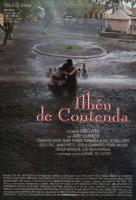Artemisa Ferreira
Articles tagged with Artemisa Ferreira
Tag Archive
- #NovaOndaCaboVerde
- african studies
- african-descent
- Afro-Port
- Afrolis
- afropolitismo
- agronomy
- Amadou Diallo
- angolan literature
- antiracism
- archive
- Artes africanas
- artistic movements
- artwork
- atlântico sul
- Ayres de Magalhães
- Bab Septa
- Black body
- brazilian film
- Brit Funk
- Bruno Pereira
- Cacheu
- Cameroon
- Cape Verde
- carbono
- cinema indígena
- Comité Invisível
- conclusion
- contemporary photography
- cotas
- crio
- Cultural Programming
- Dak'art 2016
- DAMARA INGLÊS
- David Livingstone
- dd
- democratic participation
- departures
- desenvolvimiento
- Dockanema
- Dulce Fernandes
- Earth
- espólio
- estudio
- Euclídes da Cunha
- Filipe Mukenga
- Fim do Mundo
- FMM
- Giorgio Agamben
- grime
- Guinea-Bissau
- ify obi
- immigrant
- Ingrid Mwangi
- insularity
- interculturalidade
- intersectionality
- Jean-Michel Basquiat
- jewish culture
- korubo
- kwame brathwaite
- luso-afro cinema
- macron
- Maria Eugénia Leite Nunes
- marroco
- Mella Center Lisboa
- memória
- Museu afro-brasileiro
- música angolana
- national liberation
- Nito Alves
- Osvalde Lewat
- Pé de Xumbo
- performance
- photography
- plateau
- power asymmetries
- Prémio Camões
- production
- pscianálise
- radio
- rap
- reeducation camps
- Resgate
- riots
- Ruy Guerra
- Samir Amin
- small axe
- SOS Racismo
- South Facing
- Statement
- Statue
- the end
- The Right to Look
- theory
- Trinidad
- violencia
- Visual Cultural
- x
- youth
 It’s about contesting narratives: not only narratives about Africa, Africans, Capeverdeans, and about our diverse perspectives, but also narratives about what cinema is, and what it can be, who gets to watch and be watched, who gets to speak and be heard. It is slow but necessary work. It is the work of re-inscribing our collective imagination with images that belong to us and that, in turn, transform us, and then the world.
It’s about contesting narratives: not only narratives about Africa, Africans, Capeverdeans, and about our diverse perspectives, but also narratives about what cinema is, and what it can be, who gets to watch and be watched, who gets to speak and be heard. It is slow but necessary work. It is the work of re-inscribing our collective imagination with images that belong to us and that, in turn, transform us, and then the world. 